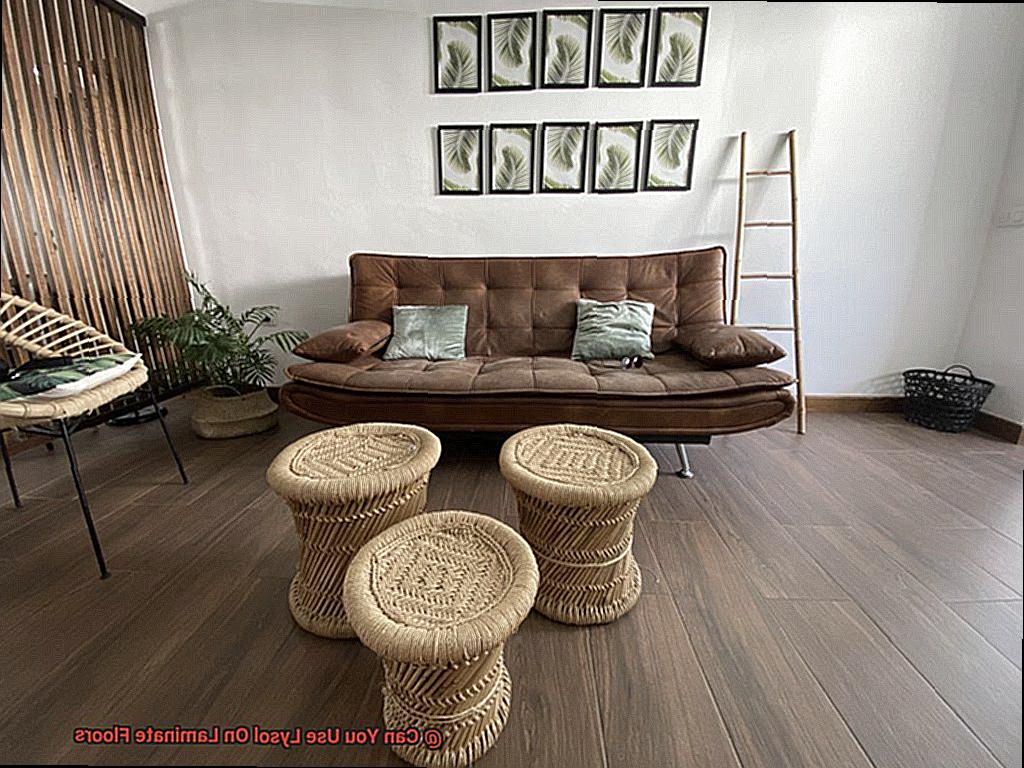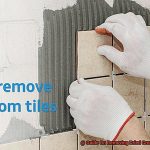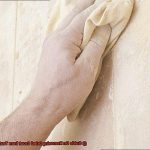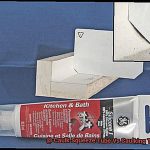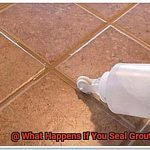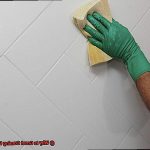A spotless home is a dream for many of us, and in today’s world, it has become more important than ever to maintain clean surfaces and floors.
Laminate floors are a popular choice for their durability, affordability, and easy maintenance. But with so many cleaning products available, it can be challenging to know what’s safe for your laminate floors.
One such product that homeowners often turn to is Lysol. The question on everyone’s mind is: Can you use Lysol on laminate floors?
Misinformation abounds, making it difficult to know what’s best for your flooring. Fear not.
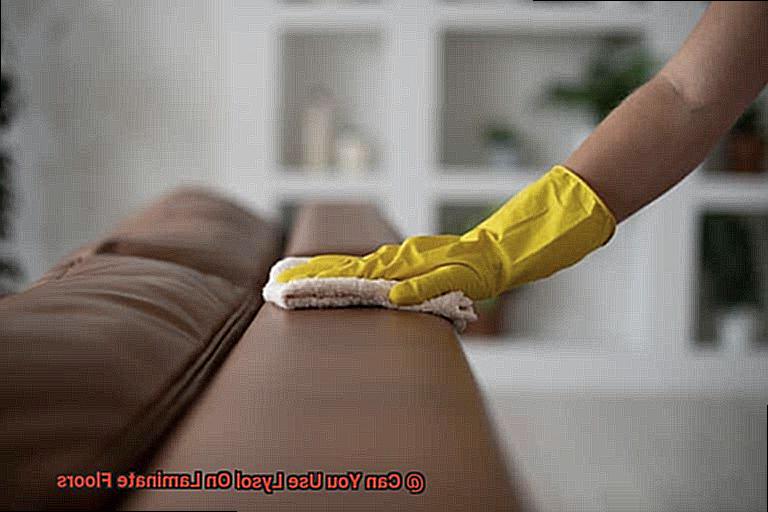
In this blog post, we’ll explore the ins and outs of using Lysol on laminate floors. We’ll answer your burning questions and provide you with all the necessary information you need to make an informed decision.
Firstly, we’ll take a closer look at the ingredients in Lysol and how they affect your laminate floors. Then we’ll delve into the cleaning process you should follow and highlight some precautions you must take to protect your flooring from potential damage.
Additionally, we’ll compare Lysol with other cleaning products with similar uses and advise on which one is best suited for your laminate floors. Are you ready to learn everything there is to know about using Lysol on laminate floors?
Let’s dive in together.
Contents
What is Lysol?
For over a century, Lysol has been a household name known for its effectiveness in killing germs and bacteria.
Originally introduced in the United States in 1889 as a disinfectant spray, Lysol has since expanded to include various other cleaning products such as wipes and all-purpose cleaners. The active ingredient in Lysol is benzalkonium chloride, a powerful quaternary ammonium compound that effectively kills bacteria and viruses.
In addition to benzalkonium chloride, Lysol products also contain other ingredients such as water, alcohol, and fragrance. Lysol products are not only popular in households but are also commonly used in schools, hospitals, and other public spaces.
They are marketed as being able to kill up to 99.9% of germs and bacteria, including the flu virus and the coronavirus. However, it’s important to note that incorrect use of Lysol can cause damage to surfaces or be harmful to people and pets.
Always follow the instructions on the label and avoid using too much Lysol. When it comes to cleaning laminate floors, using Lysol may seem like a convenient option but can cause more harm than good.
Laminate floors are made up of several layers of material that can be easily damaged by harsh chemicals or abrasive scrubbing. Lysol contains bleach which can strip the protective layer on top of laminate flooring, leaving it vulnerable to scratches and other types of damage.
It’s best to avoid using Lysol on laminate flooring and instead opt for a gentle cleaner specifically designed for this type of flooring. Warm water and a microfiber mop can also do wonders in keeping your laminate floors clean.
However, always follow the instructions on the label and consider the surface you are cleaning before using it.
Is Lysol Safe to Use on Laminate Floors?
Before you start spraying away, it’s important to understand the proper precautions to take when using Lysol on your laminate floors. First and foremost, always dilute Lysol according to the instructions on the bottle before use.
Using undiluted Lysol can discolor or even peel off the protective layer on your laminate flooring, much like how too much salt can ruin a dish. Diluting Lysol properly ensures that it’s effective and safe for use on your floors.
Additionally, be mindful of the amount of water you’re using when cleaning with Lysol. Laminate flooring is not waterproof, so excessive moisture can cause warping or buckling over time.
Instead, opt for a damp mop or cloth when cleaning with Lysol and be sure to dry your floors immediately afterwards. It’s also important to note that excessive use of any disinfectant can be harmful to both the environment and your health.
Use Lysol only as needed and follow all safety precautions listed on the bottle.
Potential Damage Caused by Using Lysol on Laminate Floors
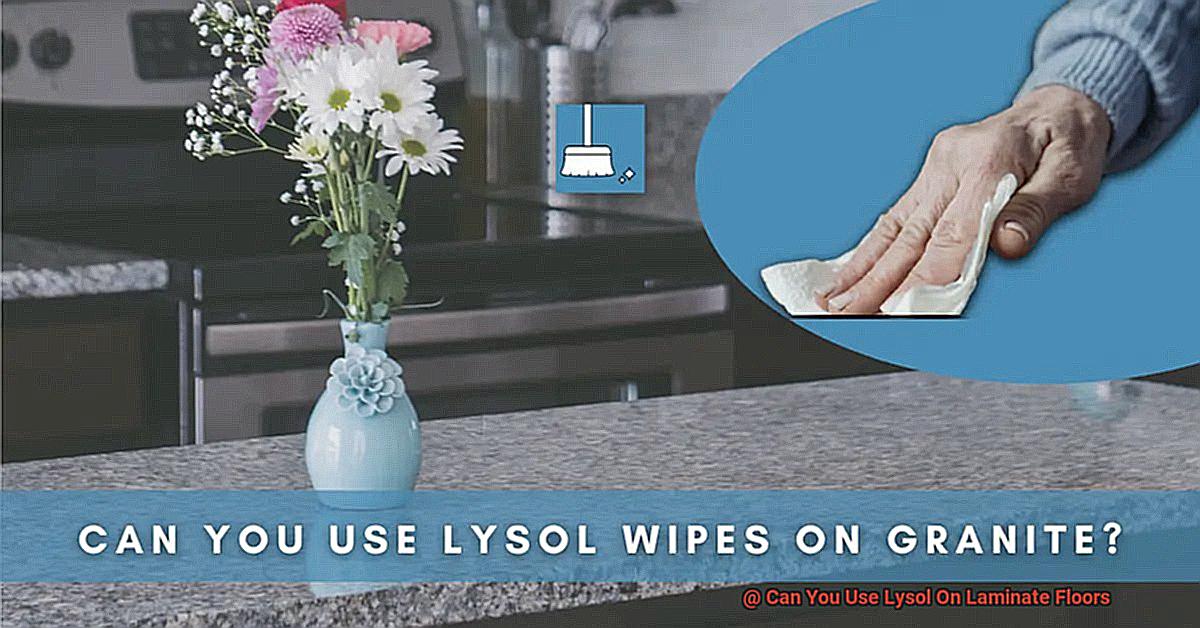
Laminate floors consist of multiple layers of materials, including high-density fiberboard, melamine resin, and a photographic layer that simulates the look of natural wood or stone.
While these materials make laminate floors durable and long-lasting, they’re also vulnerable to damage from harsh chemicals like Lysol. The chemicals in Lysol can strip away the protective coating on laminate floors, leaving them exposed to scratches and stains.
This can result in discoloration or unsightly marks on the surface that are difficult to remove. Moreover, Lysol can leave behind a residue that’s challenging to eliminate, further damaging the laminate flooring.
Using Lysol on laminate floors can also cause the floorboards to warp or buckle. The chemicals in Lysol can penetrate the seams between the boards, leading them to expand and contract over time.
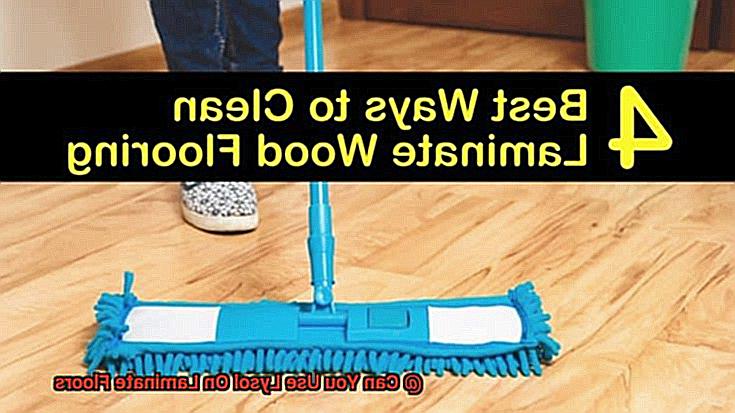
This can result in permanent damage to the floor, requiring expensive repairs or replacement. It’s worth noting that not all types of laminate flooring are created equal.
Some laminates are more durable than others and may tolerate the use of Lysol better than others. However, as a precautionary measure, it’s best to avoid using harsh chemicals like Lysol on any laminate floor.
To keep your laminate floors clean and well-maintained, it’s best to stick to mild cleaning solutions that won’t cause any damage. Regular sweeping and mopping with warm water and a gentle cleaner will help keep your floor looking its best without risking any potential damage.
In conclusion, as an expert in this field, I strongly advise against using Lysol on your laminate floors. The potential damage caused by using Lysol far outweighs any benefits it may provide.
Instead, opt for gentle cleaning solutions that will keep your floors clean and well-maintained for years to come.
Alternatives to Using Lysol on Laminate Floors
Using harsh chemicals like Lysol can spell out doom for your beloved floors. The good news is that there are plenty of alternatives to using Lysol that are both effective and safe for your laminate floors.
One such alternative is a mixture of vinegar and water. This simple solution involves mixing equal parts water and white vinegar in a spray bottle and using it to clean your floors.
Vinegar is a natural disinfectant that will not only leave your floors looking shiny but also help eliminate odors. Another option is to use warm water and dish soap.
Simply add a few drops of dish soap to a bucket of warm water and use a mop or rag to clean your floors. This gentle method is highly effective at removing dirt and grime from your floors without causing any damage.
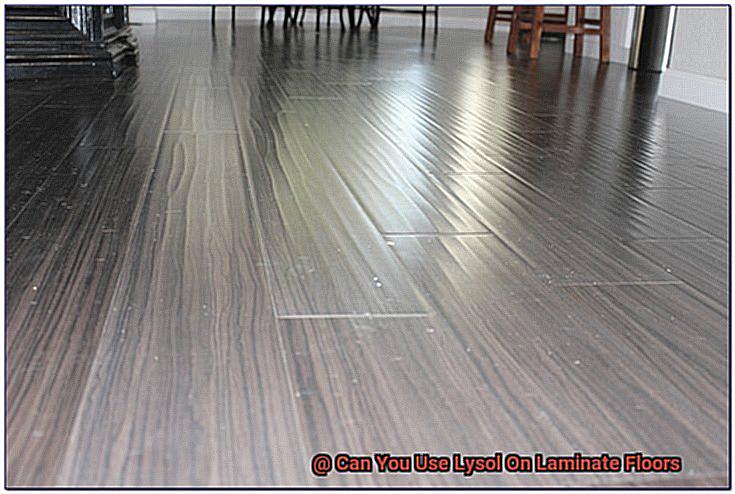
If you prefer commercial cleaners, make sure to look for ones that are specifically designed for laminate floors. These cleaners are safe to use and won’t cause any harm to your floors.
However, be sure to follow the manufacturer’s instructions carefully. Steam cleaning is also an excellent alternative to using Lysol on laminate floors.
Steam cleaners use heat to disinfect and remove dirt without the use of harsh chemicals. However, it’s important to be cautious when using steam on laminate floors as excessive moisture can cause damage.
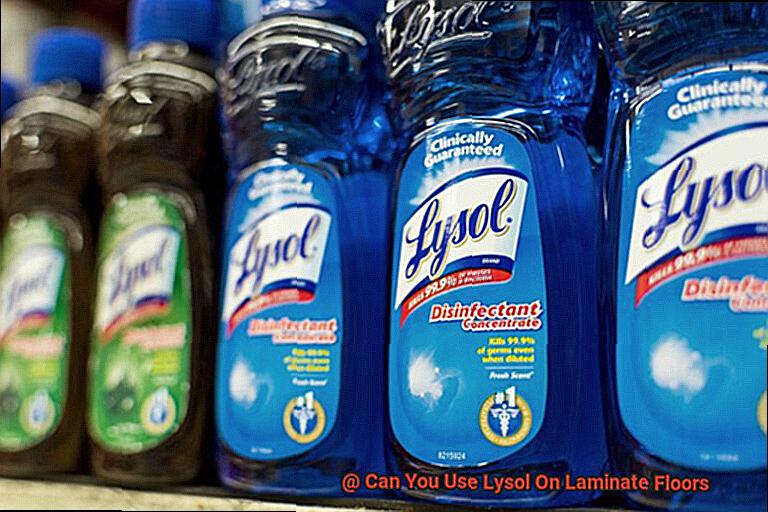
Lastly, prevention is key when it comes to maintaining the longevity of your laminate floors. Place mats or rugs at entryways to catch dirt and debris before it can be tracked onto your floors.
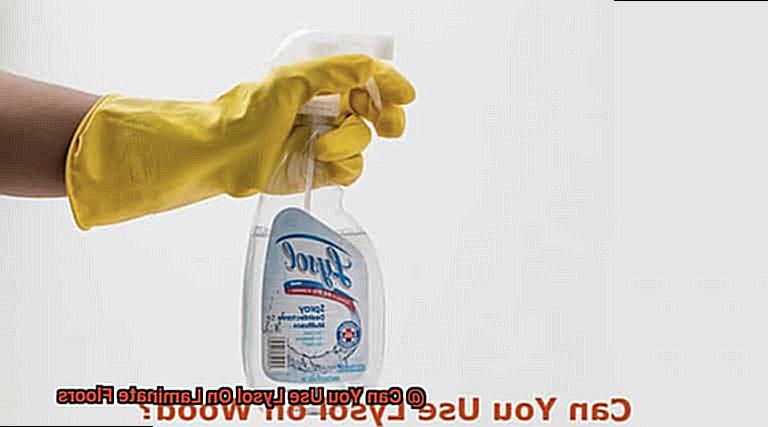
Regular sweeping or vacuuming can also help prevent dirt and debris from building up on your floors.
How to Clean Laminate Floors without Lysol
Cleaning laminate floors can be a daunting task, especially when you want to avoid harsh chemicals like Lysol. Luckily, there are several effective and natural alternatives that can thoroughly clean your floors without causing any damage. Here are five ways to keep your laminate floors clean without using Lysol.
Vinegar and Water Solution
One of the easiest and most effective ways to clean laminate floors is with a simple mixture of warm water and white vinegar. Vinegar is a natural disinfectant that can kill germs and bacteria without damaging your floors. Mix equal parts water and vinegar in a spray bottle or bucket, then apply the solution to your floors with a microfiber mop or cloth. Not only does this method clean your floors, but it also leaves them smelling fresh and clean.
Commercial Laminate Floor Cleaner
Another alternative is to use a commercial laminate floor cleaner that is specifically designed for laminate flooring. These cleaners are available at most home improvement stores and are formulated to clean and protect laminate flooring without causing any damage. Be sure to follow the instructions carefully and avoid using abrasive cleaning tools.
Baking Soda Scrub
If you prefer a more natural approach, try using baking soda to scrub away dirt and grime on your laminate floors. Sprinkle a small amount of baking soda onto your floors, then use a damp mop or cloth to gently scrub away stains and odors. Baking soda is a gentle abrasive that won’t scratch your floors but will leave them looking clean and fresh.
Soft-Bristled Brush
When cleaning your laminate floors, it’s important to avoid using abrasive cleaning tools like steel wool or scouring pads, as they can scratch the surface of the flooring. Instead, use a soft-bristled brush or microfiber mop to gently clean the surface. This not only protects your floors from damage but also ensures a thorough cleaning.
Avoid Excessive Water Use
It’s important to avoid using excessive water when cleaning laminate flooring, as too much moisture can cause the boards to warp or buckle. Instead, use a damp mop or cloth and immediately dry the floor with a clean, dry cloth after cleaning. This helps to prevent any water damage and keeps your floors looking their best.
So, cleaning your laminate floors without Lysol is easy and effective with these natural alternatives. By using vinegar and water solutions, commercial laminate floor cleaners, baking soda scrubs, soft-bristled brushes, and avoiding excessive water use, you can maintain clean and hygienic floors while protecting your family and pets from harsh chemicals.
5u73IGX5TcU” >
Conclusion
Keeping surfaces and floors clean is more important than ever.
Laminate floors are a popular choice for their durability, affordability, and easy maintenance. However, with so many cleaning products available, it can be challenging to know what’s safe for your laminate floors.
Many homeowners turn to Lysol as a trusted disinfectant that can help keep their floors free of germs. However, using Lysol on laminate flooring may cause more harm than good.
Laminate floors consist of multiple layers of materials that can be easily damaged by harsh chemicals or abrasive scrubbing. Lysol contains bleach which can strip the protective layer on top of laminate flooring, leaving it vulnerable to scratches and other types of damage.
Instead, opt for gentle cleaning solutions specifically designed for laminate flooring. Vinegar and water solution or commercial laminate floor cleaners are effective alternatives that won’t cause any damage.
Additionally, using a soft-bristled brush or microfiber mop to gently clean the surface and avoiding excessive water use will keep your floors looking their best. As an expert in this field, I strongly advise against using Lysol on your laminate floors.
By choosing natural alternatives and following proper cleaning techniques, you can maintain clean and hygienic floors while protecting them from potential damage caused by harsh chemicals like Lysol.

